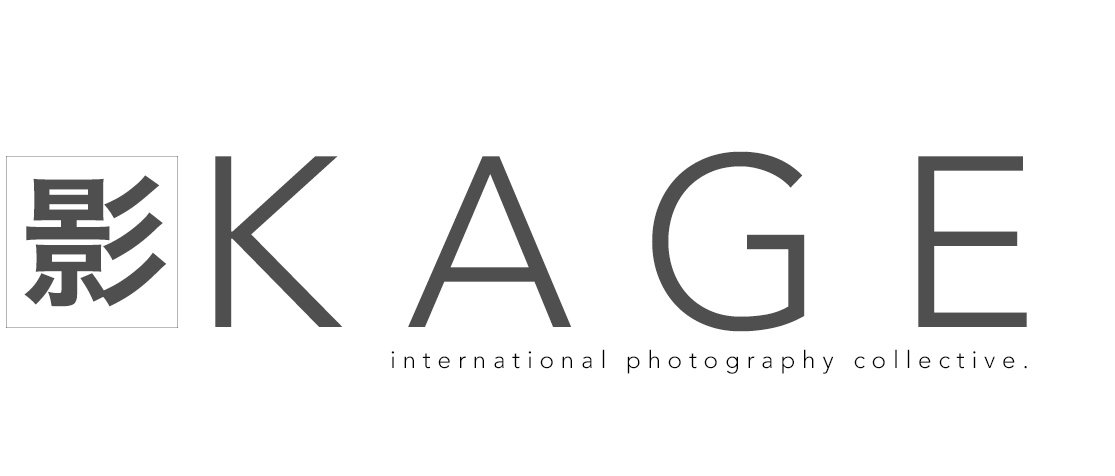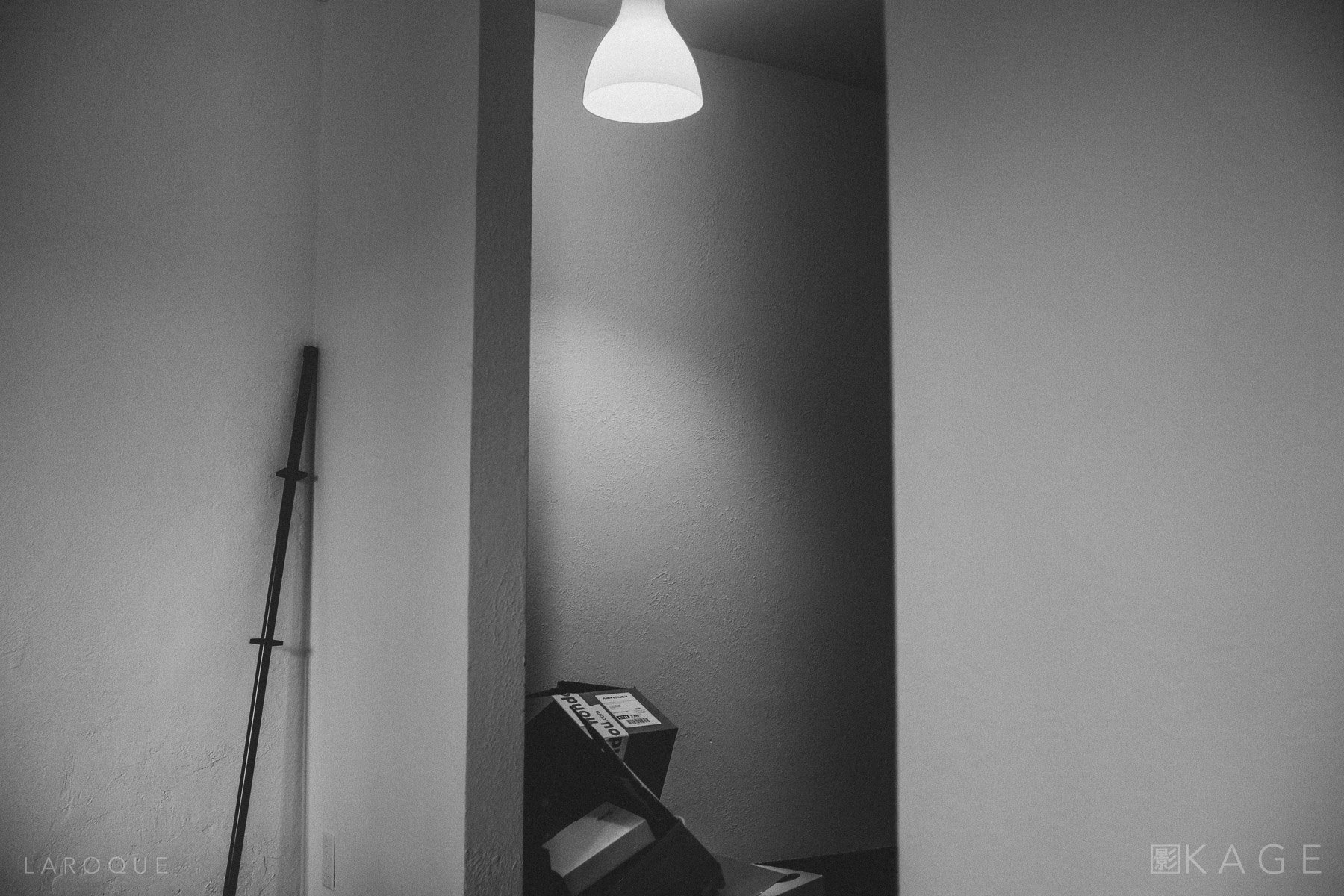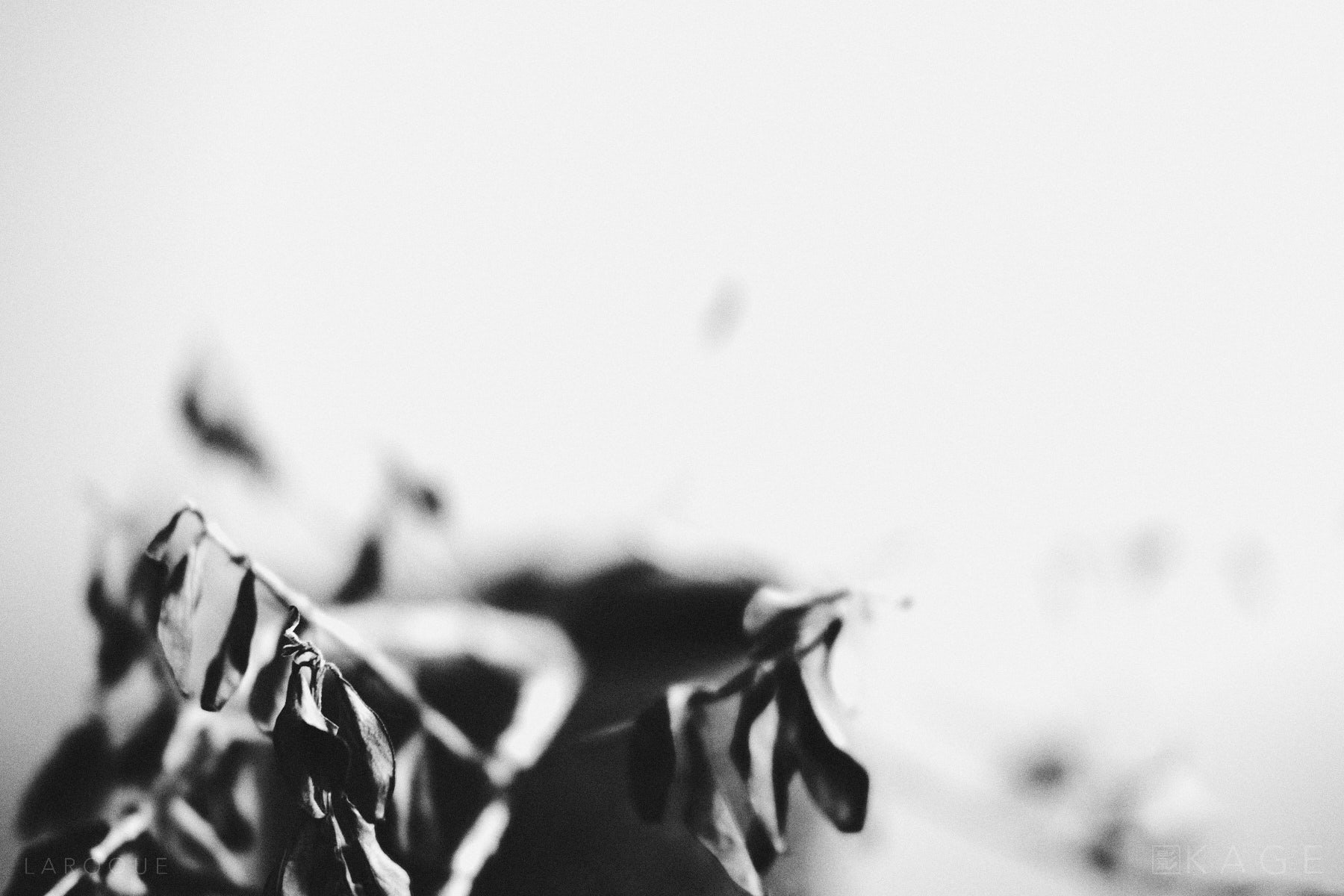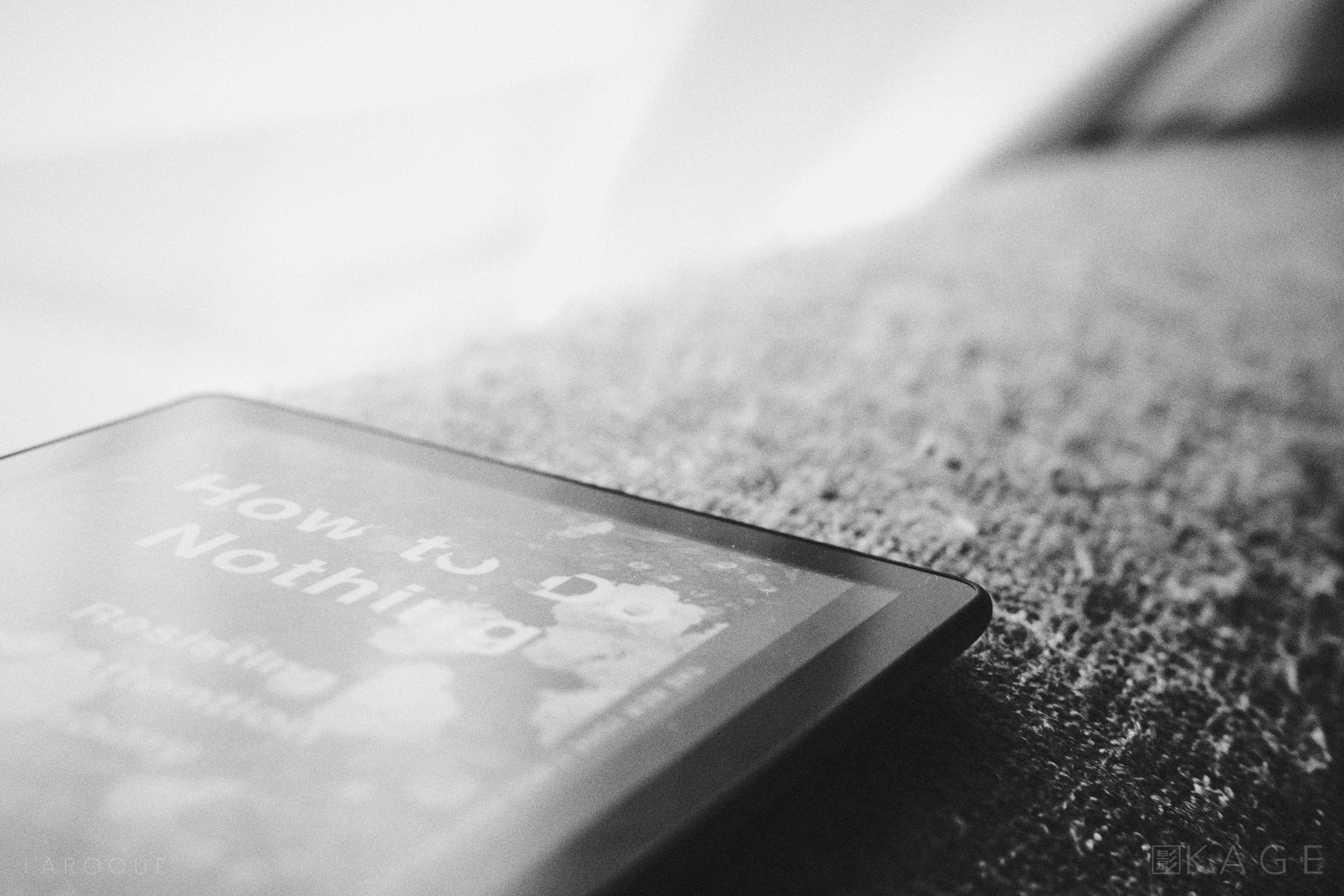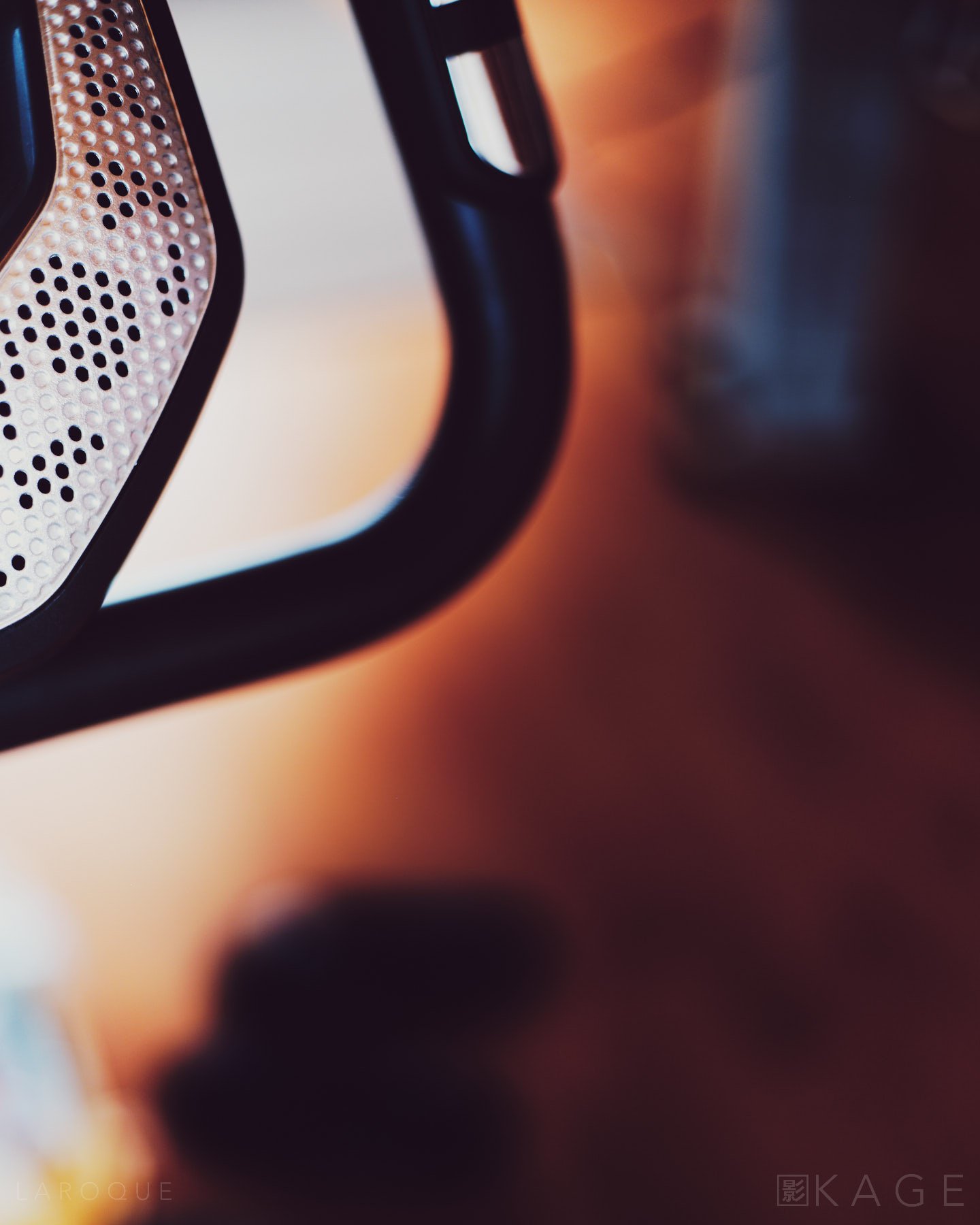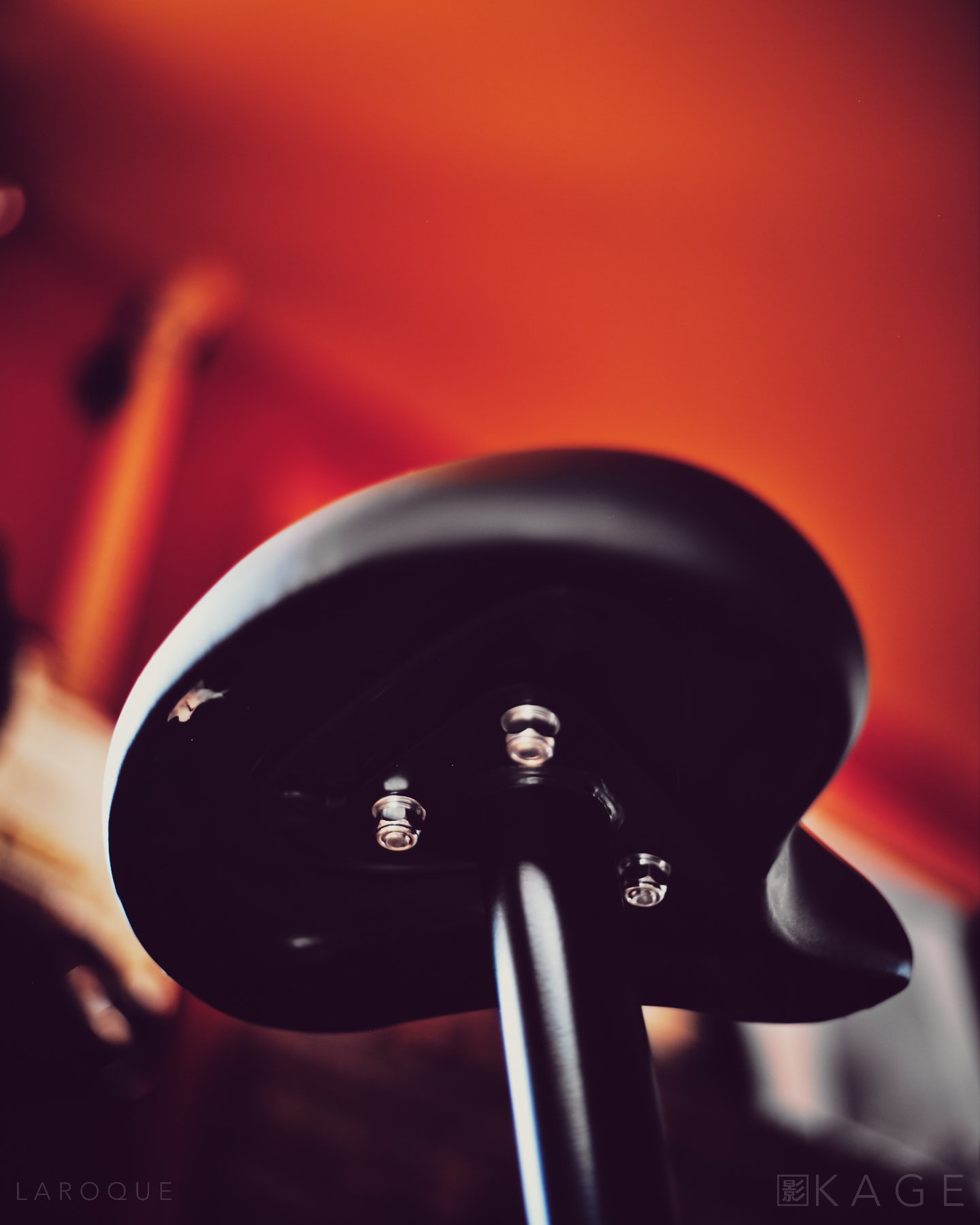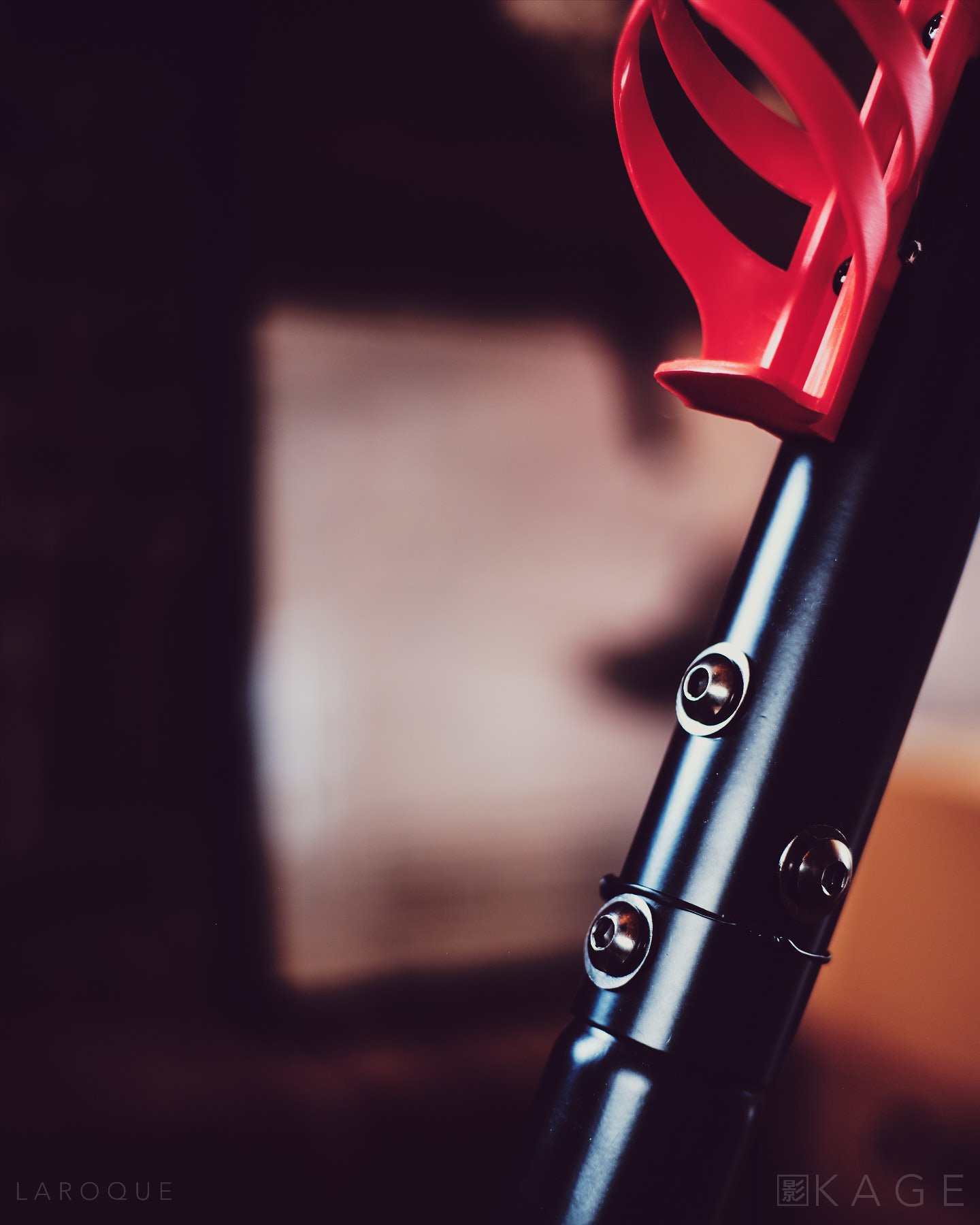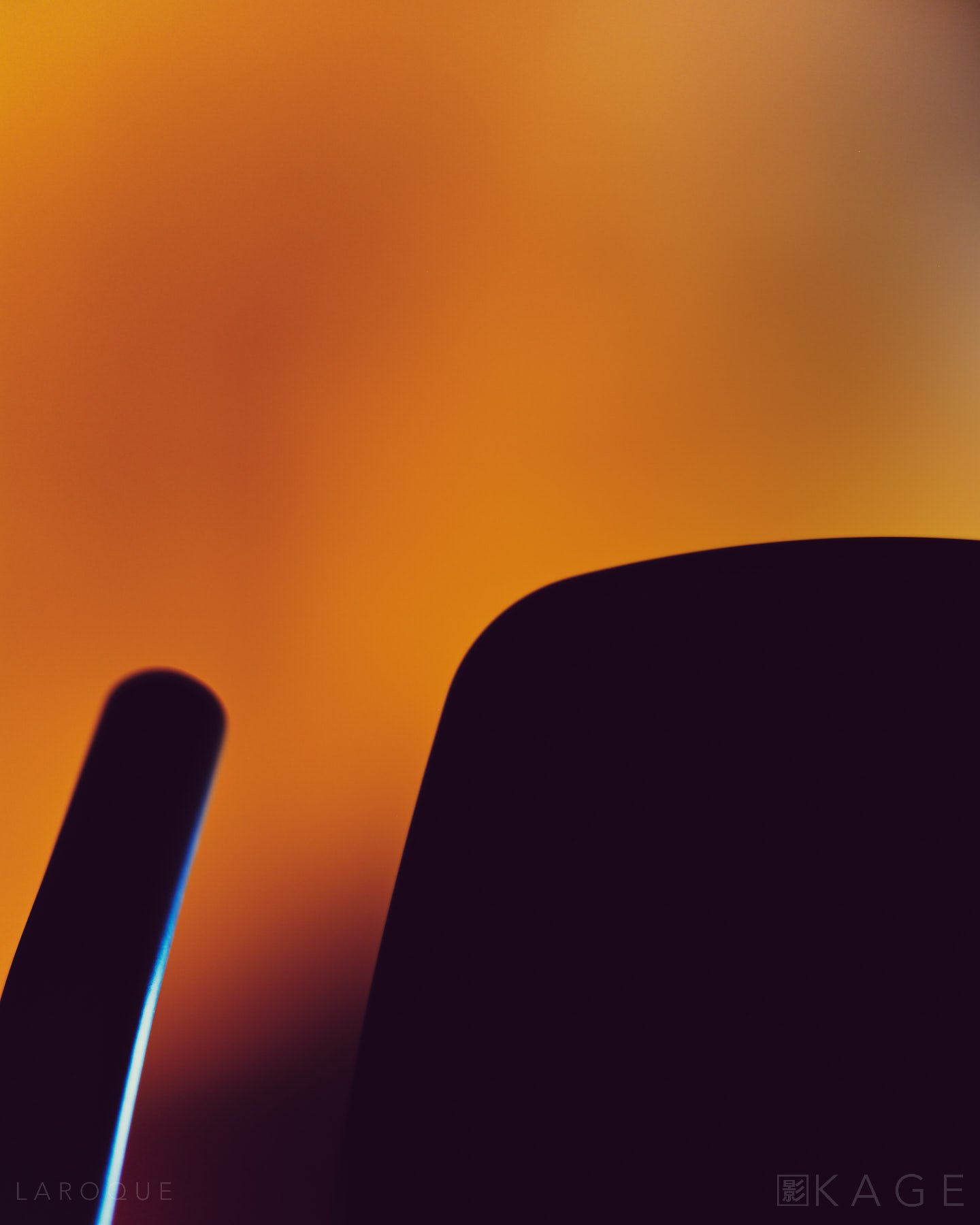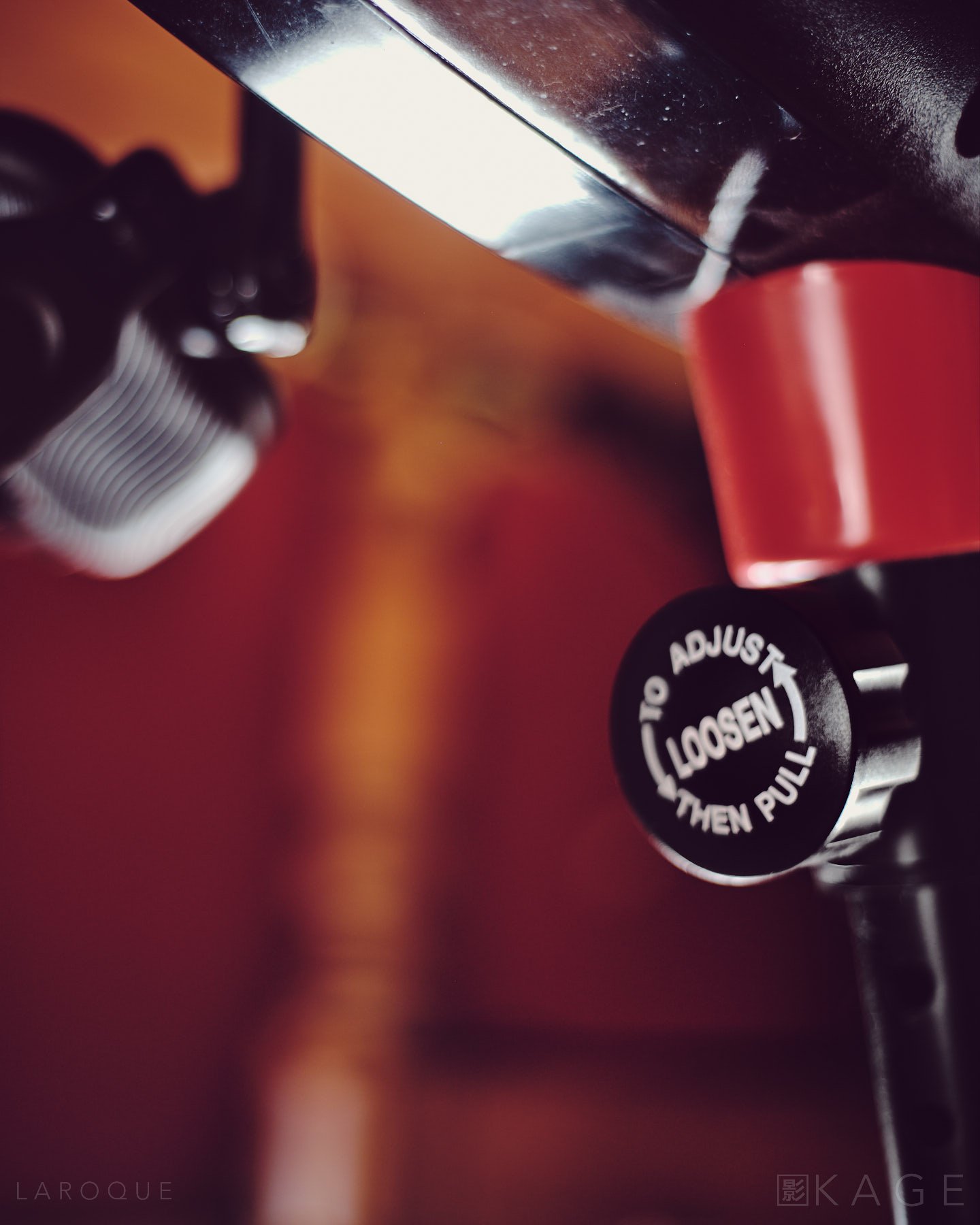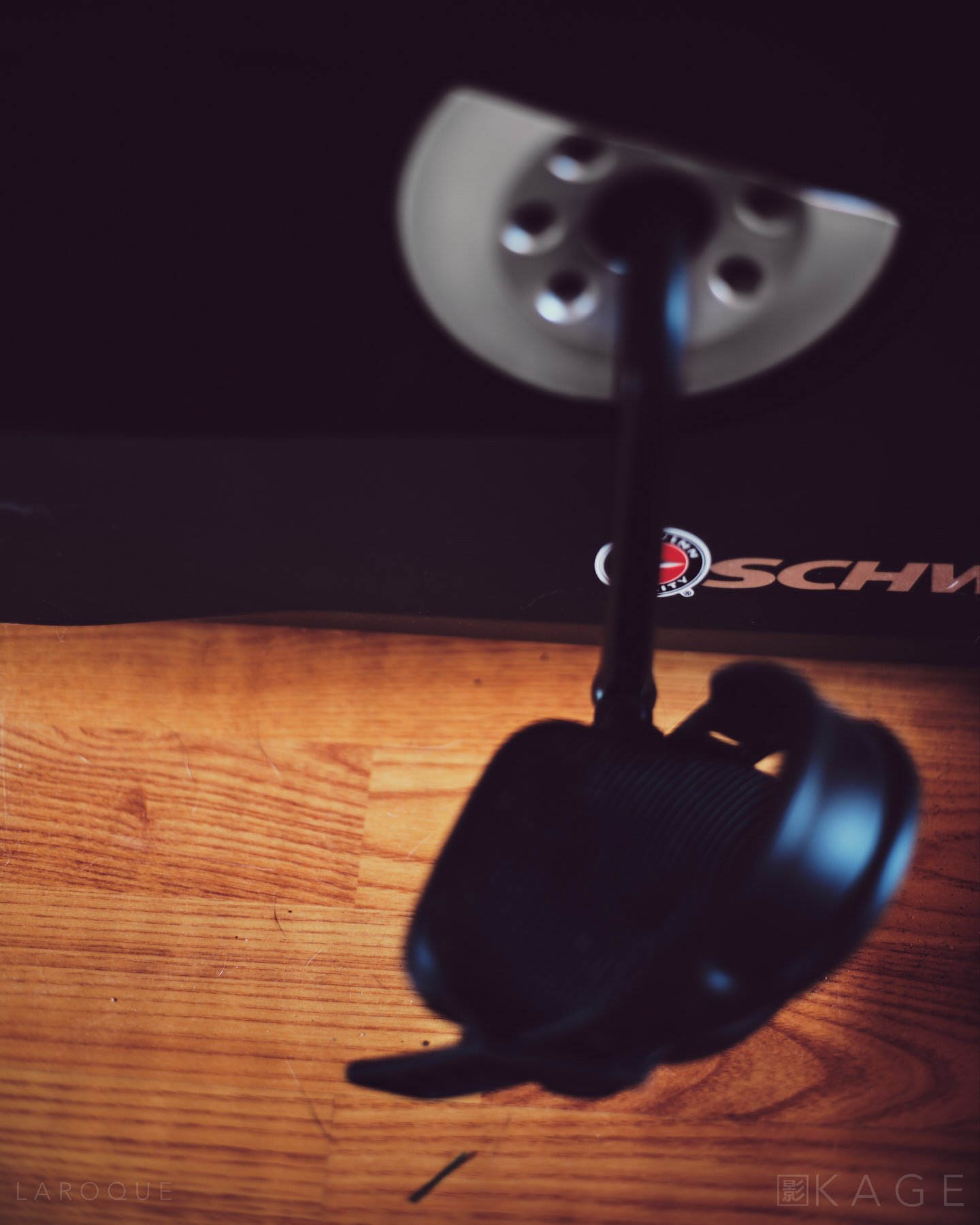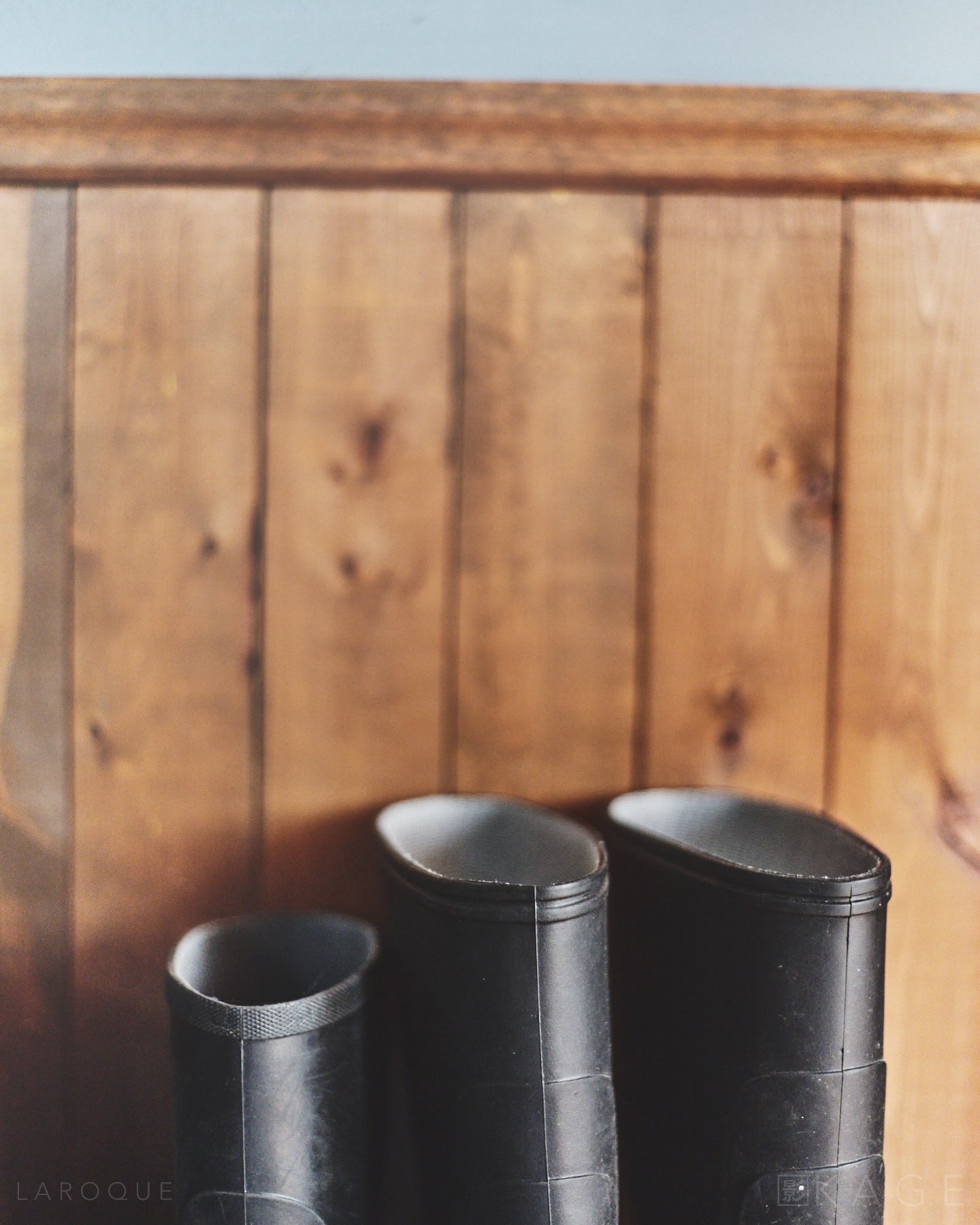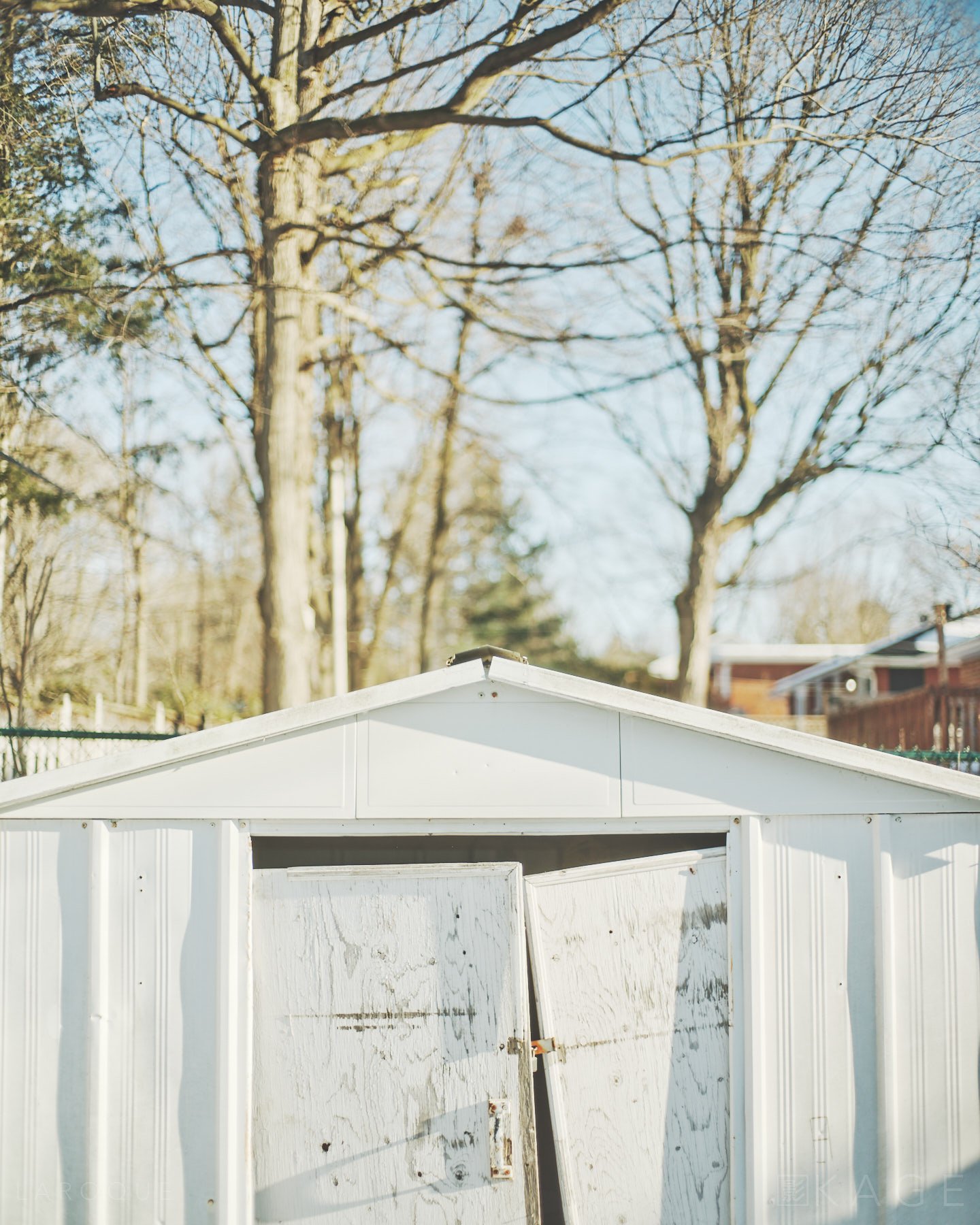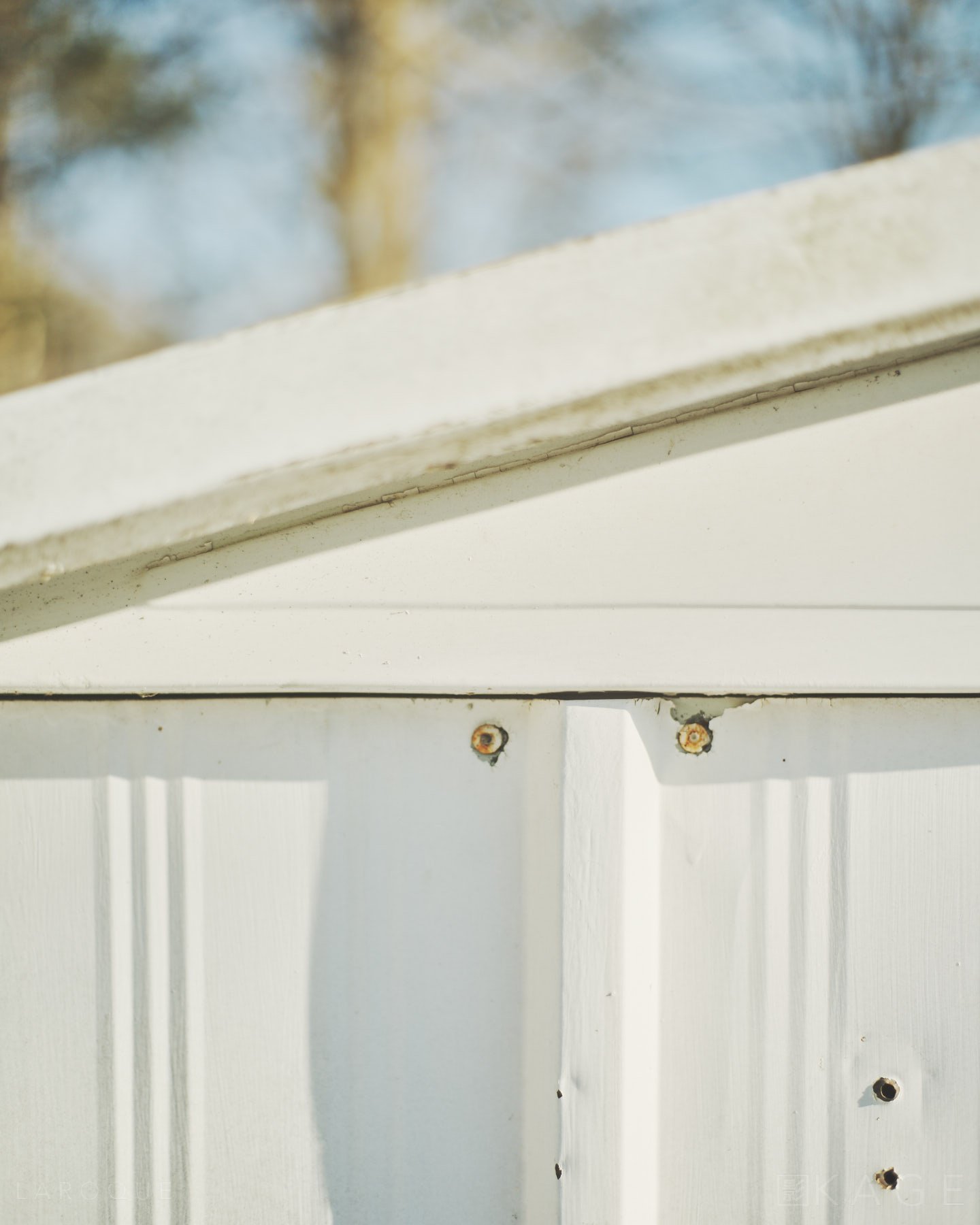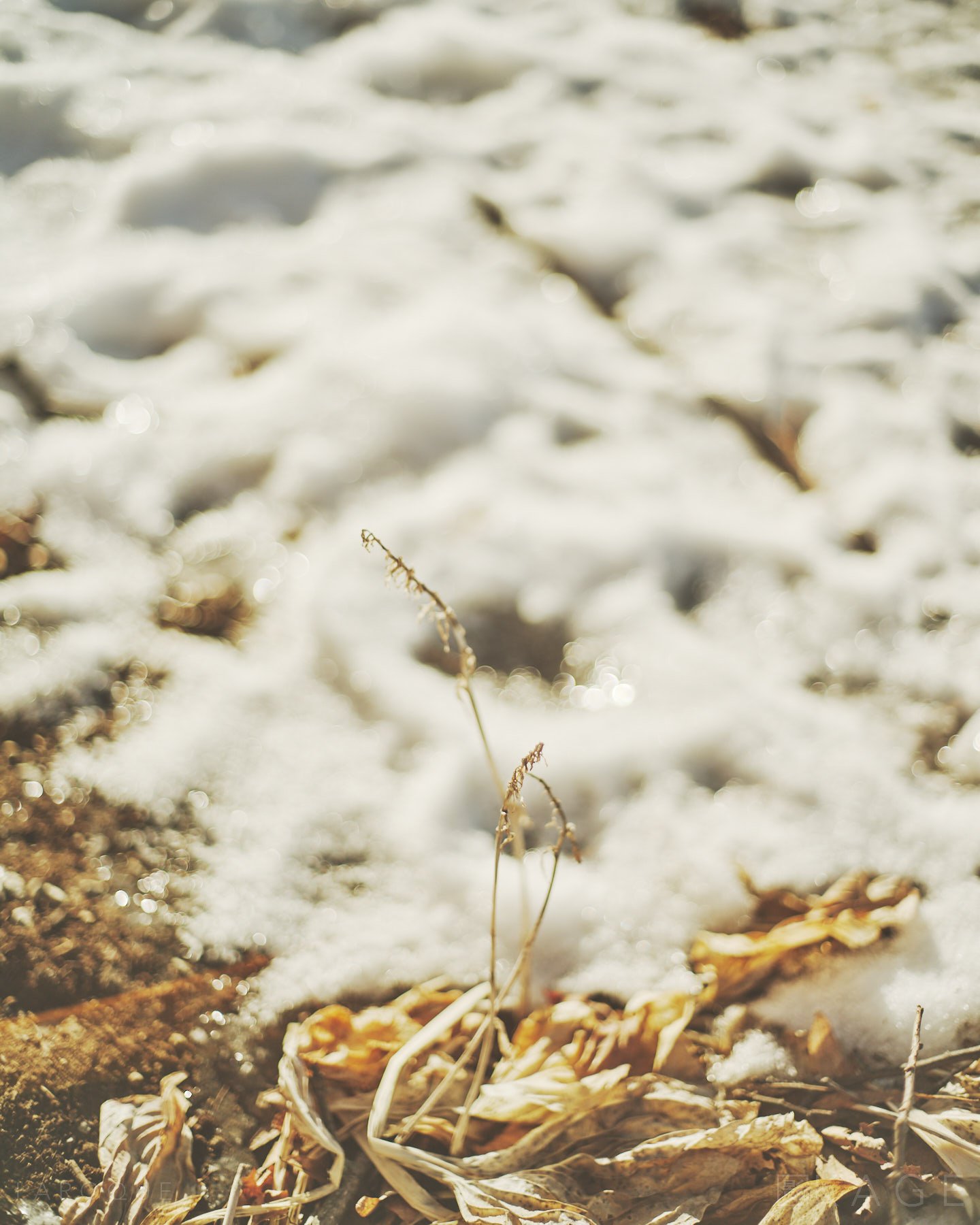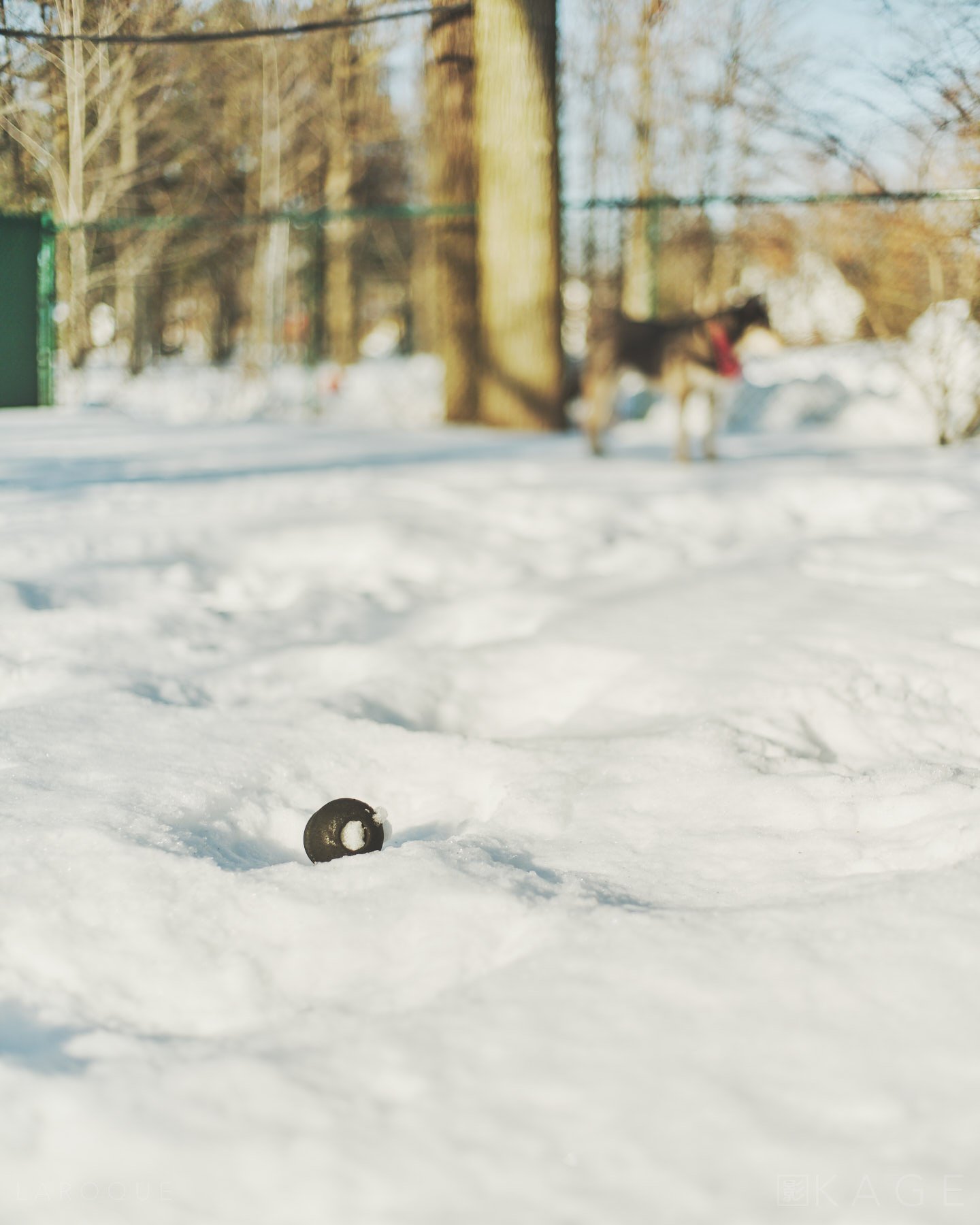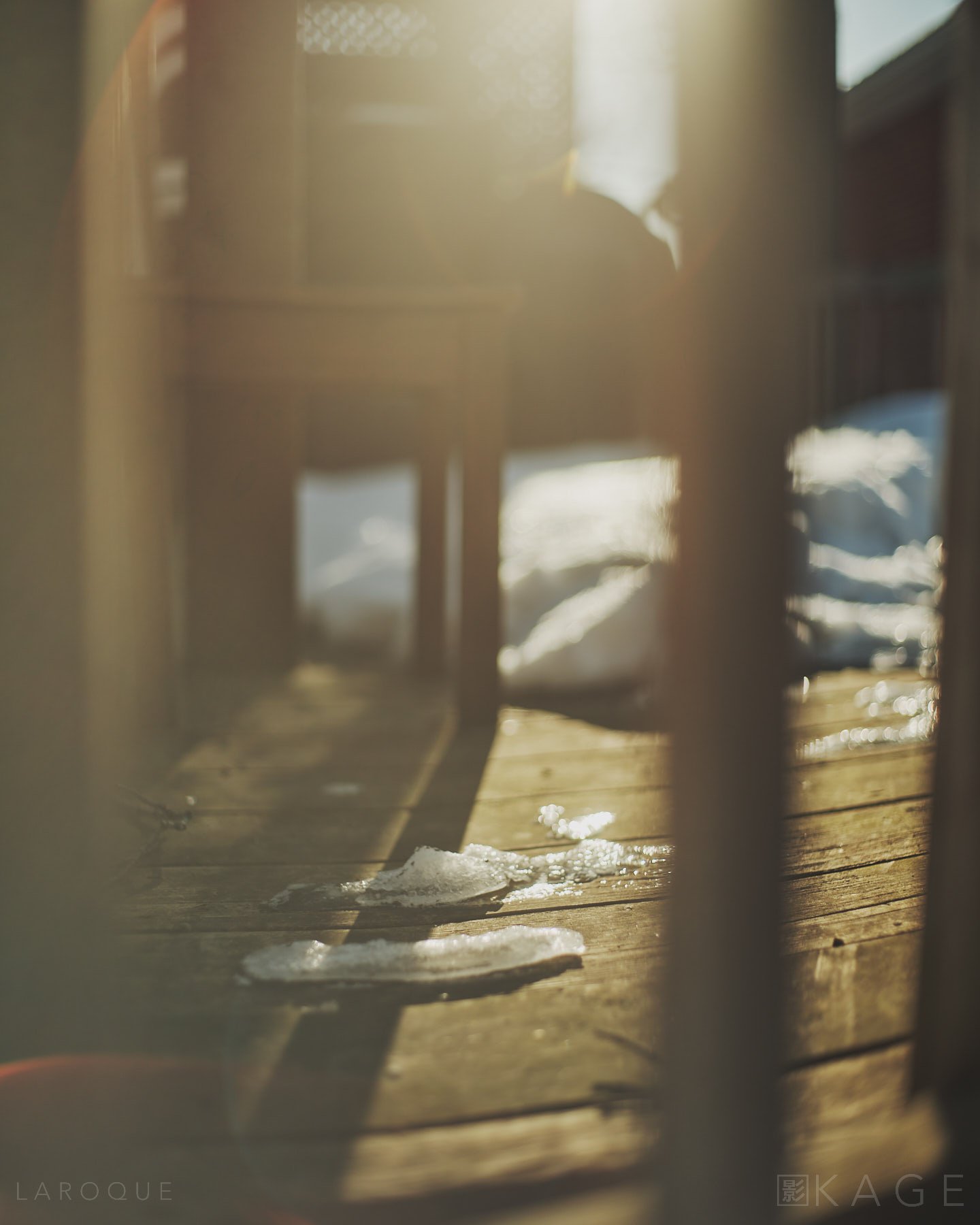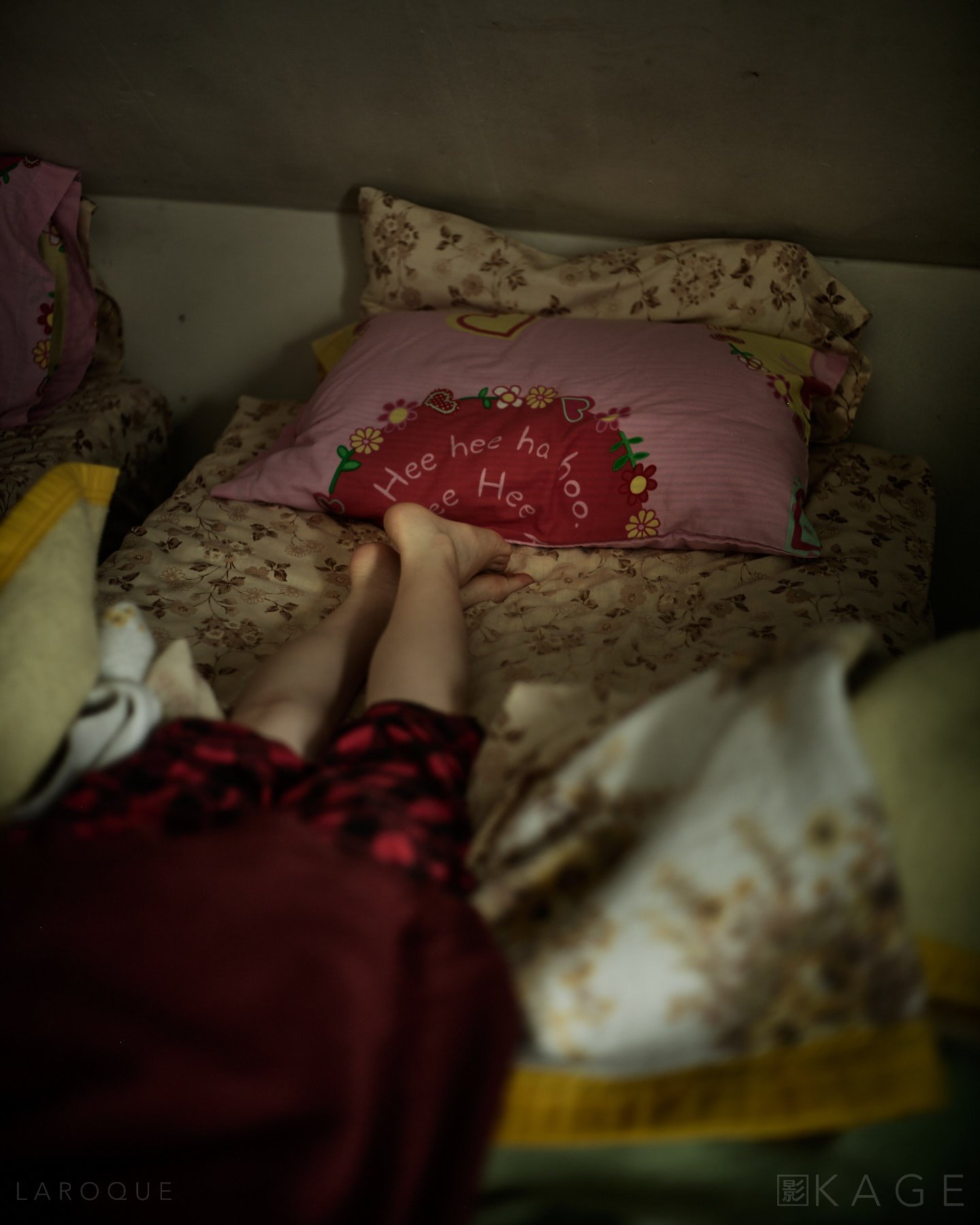Second cut, clean slate.
The streets are still gray and dirty from winter, but we're standing at the very edge of spring and an explosion is coming.
They say the first cut is the deepest, but that was a year ago: our first kid moving out of our house. Two of them did, in fact, both studying in other towns too far to commute. But this move, this year, is different: Jacob's back in Montreal, but not with us—he has his own place now, an empty apartment, a space for which he can draw the blueprints. With friends nearby, the pulsing beat of the city, police sirens and traffic and bars and summer fests. Real life. They lucked out, him and his cousin, finding this spot in a tough market, in a coveted neighbourhood.
Closer to home, but that much further away.
Clean slate.
The Way Back
By Patrick La Roque
Vinyl, it turns, out, was a gateway.
I first installed the turntable on a rotating tv stand (quite the anachronistic piece of furniture from my mom's house), next to the desk, connected to the mixer through a small pre-amp hastily purchased from Amazon. The old records sounded great in the studio monitors, and for awhile I was perfectly content spinning albums while busying myself with daily work. But after a few after-hours listening sessions in that office chair, I thought to myself "man, this is kinda silly". So I pulled an older set of slightly busted powered speakers out of storage, and moved the whole setup to the other end to the room. The sound took a hit, but I could live with it. I went up to the attic, found an ageing Ikea lounge chair—a leftover from my bachelor days—dropped it smack-dab on the "sweet spot". But now the tv stand looked ridiculous so I ordered a small media cabinet, cheap and nothing fancy, but clean. I added my buddy Robert's Uberlight to illuminate the turntable when needed. Got some cleaning supplies to refresh my dusty collection (along with twenty+ classical records acquired for a dollar each at a neighbourhood yard sale).
One day, not too long ago, I started thinking about the receiver I'd purchased back in the 90s—a mid-range Harman Kardon. The new cabinet had this built-in shelf just begging for it. I remembered something being broken, but after a good cleanup everything worked, except for the radio. No big deal, right? I unplugged the pre-amp, tested the receiver's Tape Out to see if it would send a signal to the powered speakers. It did, and the sound immediately expanded (not sure why, it's a direct pass through...whatev). This Tape Out setup, however, meant bypassing the unit's signal processing. Bit of a shame. I cursed myself for selling RFT speakers for peanuts, years ago.
Note to self: be a pack-rat, damn it, you never know.
On our visit to the Maricourt flea market I headed straight for the electronics section, hoping to maybe get lucky and unearth a decent pair of stereo speakers. Nope. Damn it. I was a dog with a bone now. I found myself lurking on audio forums here and there, to get a sense of what was available, what could be ok, and affordable. Brands to avoid, those to look for. Just curious, you see.
I found a deal on a set of Elac Debut 2.0 b6.2—German brand, design by Andrew Jones (famed speaker designer), mostly glowing reviews all-around.
I took one more step.
...
I've been a musician my entire life. I used to spend hours and hours dissecting album after album, of all genres, lying on dusty apartment floors, alone or with friends, rooms drenched in burning incense with the lights turned down to half a sliver of a lux. But over time music slipped into the background, a soundtrack to merely colour the day to day movements of our lives. Unobtrusive to the point of anonymity. Music for work, for dinner, for cooking, and driving. Music as decor. Spatial Audio? Pfff. Most of this wasn't even played in stereo anymore, relegated to solitary Echo and Sonos devices pretending to sound right.
Now for the first time in years, I don't simply hear music—I stop, I explore, I choose, I listen. Not just to vinyls either: I've wired outputs from the studio mixer to the Harman Kardon receiver, which allows me to send audio from the Mac (or any device with Airplay), opening up our entire streaming library.
Filling a room with sound is transcendent: there is air and movement and vibrating particles interlocking, bouncing off walls and piercing the skin. Resonances like mantras and soft meditations. Character borne of chipped paint, old wood, and glass. It's the sound of ghosts, of unrelenting memories, a realm of contemplation and awe and alchemy.
Vinyl, it turns out, was a way back.
Glitter & Stars
By Patrick La Roque
I'm searching for words that aren't coming. The snow's falling, finally, enough of it to cover the brown and beige monotony of the past month. 2022 is almost over and yeah, it was slow around here. I'd love to pinpoint a reason, but I confess to being at a complete loss. Is it fatigue? A less urgent need to express ourselves on a regular basis?
When I saw Bert's post a week ago I immediately picked up my camera and walked around our house, now fully decked out for the holidays. It felt right. Maybe not as essential as it once did, but comforting. A beginning, at least.
Wishing you all the very best.
More inspiration, more awe, more love.
Dispatch from an Analog Day
By Patrick La Roque
I shut down my phone last night. Doesn't happen very often so I'd forgotten the key combo. Had to dig in the settings for that one. My iPad is off as well, nestled between two books on my desk. The computer is silent; no fans, no whirrs, and no glare hitting my retinas everywhere I turn. It's early, still, but already minutes seems looser, elasticized by the sudden disappearance of markers. This is a dispatch from my first self-imposed analog day. As in, few electronics or screens, no multipurpose devices. I'm writing this on a typewriter, after filling up two pages in a notebook. I also took pictures of a dead houseplant a few moments ago—they’re on the card but I haven’t looked.
I'm not wearing my watch.
So far, so good.
There’s an unusual sort of anxiety in the air, like you've forgotten something but don't quite know what it is. Thoughts pop into my head, ideas I’d normally record on a machine, to check, or note, whatever. But I have to stop myself and there’s a sudden jolt, as my brain reassesses, unexpectedly. This is years of conditioning, challenged. An entire workflow upended. Every time it happens there's a micro-panic while my mind scrambles for a solution, searching for its bearings, trying hard to settle. And it does. It does.
…
No metrics. Today will not exist. To all those apps, I'll be a non-entity for the next 24 hours, a blank placeholder between streaks. Nothing out there will know that I drank water, and meditated, and spent time working on a post on a 1960s machine with mechanical arms banging and smacking and splashing ink on a letter-sized piece of office paper. My existence today will leave no trace. A precipice. Null and void.
What I do now, I do from Outside. I could be an unknown force fomenting a quiet revolution away from prying eyes. There is no word count, no time tracking.
This day will not be logged.
I Don’t Know.
By Patrick La Roque
I’m using the title of this post as a direct response to Bert’s Now What? And while I’m at it, let me also echo his appreciation of the work some of you shared on Instagram during the #kage202202 project: you folks do indeed rock. Thank you.
But my god, what a loaded, impossibly difficult question to answer. Because we’re still mostly stumbling in the dark, aren’t we? I did my first maskless shoot in almost three years a few weeks ago, and I was stunned by how emotional that was. I felt a weight lifted that I didn’t even know I’d been carrying. I’ve always been fully on-board with measures surrounding COVID-19, especially mask-wearing which is just, basic, elementary and beyond obvious. It’s an airborne virus. We wash our hands before dinner too, FFS.
And yet here I was.
As I stood there with strangers, watching their mouths and lips and smiles, listening to unmuffled voices, shooting the breeze without care, the memories flooded back: this is normal, this is what we do. We are social animals. We exist in packs and feed on the warmth, breath, and oscillations of others. I’d even argue that, for the most solitary among us, disconnection is only possible because we’re secure in the knowledge of others, out there, within reach. Anything else is a void, not a choice. So what I felt there, I think, was hope.
And then Russian forces bombed a maternity hospital.
I use the word “force” because I refuse to believe this is the Russian people’s war. It is a war of old, cruel men with blackened hearts, grasping at the vestiges of a savage century. A roomful of tyrants with the unfortunate power to destroy the world. Wait, what was my point again? Ah, yes: that I don’t know. That I Don’t. Fucking. Know.
Other than we must go on, and dig the earth and pull at the stars and do everything in our power to shine, shine, shine. One image, one song, one story at a time.
This is the torch we wield in the night.
And its flame should burn.
And Again We Accepted The Drums Of War
“I went in yesterday and there was a television screen, and I said, ‘This is genius.’ Putin declares a big portion of the Ukraine, of Ukraine, Putin declares it as independent. Oh, that’s wonderful...”
“Social media posts claim Canada’s governor general said she would remove Prime Minister Justin Trudeau if she received 958,000 emails calling for his departure. ”
“Russian forces have launched a major military assault on Ukraine, with reports of missile strikes and explosions near major cities.”
By Patrick La Roque
I picture a teenage boy. He’s in his room, staring at the space in front of him. He doesn’t see what’s actually there—no walls, no dirty carpet covered in yesterday’s clothes. He sees control panels floating at arm's length, lines and geometric shapes in a constant state of mutation, their oscillations so fast it blurs their outlines.
Below these a terminal window, complete with an old-school prompt. It’s a nod to Gibson and Stephenson, his favourite authors in The Simulation™.
>_
Do we cry, scream, or shrug at this point? I never expected I’d be writing this project’s last entry on a day that might now live in infamy—the largest attack on European soil since WWII. What? Oh! My apologies: on the day “Russia Began Its Peacekeeping Operations In Ukraine”.
War is peace, as we all know. Silly me.
I once believed humanity had turned a corner. We’d flirted with nuclear annihilation, realized our foolishness, and decided to leave savagery behind. The Berlin Wall came down, the Cold War thawed—we would slowly enter an age of reason, fuelled by technology and a renewed sense of collective purpose.
The Oracle of Delphi I am not.
I spent the last few days finalizing details for two projects—a commercial shoot next week, and a rather surprising commission that I never saw coming. This, along with the usual writing sessions, work on an upcoming book, research, trying to stay in shape and mentally fit, driving the kids around…it adds up. It mutes the outside world somewhat.
But those drums are so bloody loud. Downbeats to blow-up every subwoofer from here to fucking eternity. Trucks smashing at the gates, the livid and clueless playing out Hollywood hero fantasies, with mouths foaming. The Patriot Sons and Daughters of Meta, dancing to The Feed. What an uncannily appropriate name that is, too. So obvious it’s almost daring.
And now, this unlawful attack.
Heartbreaking. Cruel. Unhinged.
I haven’t recorded today’s accompanying soundscape yet. But I hear notes already. Clusters. A low, dark resonance.
It’s coming…
Hey kid? Flip a switch, won’t you? Get some homework done, clean your room… You’ve had your fun.
The game’s just about played out for us.
All images in these posts were shot with the GFX 50S and a vintage Pentax 50mm f/1.7 lens.
Two Short Filmstrips
By Patrick La Roque
I read Bert’s bike post with a tinge of envy. I know it’s been gray in Belgium, with rain, and all the lovely mud and puddles that come with it.
But from where I’m standing, that just ain’t winter. If my Canadian eyes see green anywhere, the lawn chairs come out.
My bike is hanging off a hook in the basement, waiting for May, at the earliest. I could be a lot more courageous, but I’m not. It also needs a tune-up. Until then we have snow and lots of it. Until then there’s a stationary bike I can hop on, if I whip myself hard enough.
A typical week in February…
Chasing Flow
By Patrick La Roque
I’m looking at my keyboard, head down, eyes lowered, drawing a blank, mostly. But I do enjoy how its keys twack and thud when I hit them. There’s XTC on my speakers and a cup o’ Joe next to my right hand and a timer ticking down on my iPad. Seven minutes gone. Damn. When did time get so fucking unbearable?
I’ve also never uttered the words “cup o’ Joe” before. Ever.
Ok. Ten minutes now. Seriously?
…
There’s nothing quite like the aftermath of a winter storm in the countryside. When the weather dabbles in magic, and the sun comes out but temperatures hold, cold enough for the snow cover to be stilled, heavy, a mimic of eternity. You forget greyness in these moments; you forget it ever existed. And light glares and shines and sparkles and all those synonyms fight each other while you let yourself fall and the ground slurps you up and the dog barks and the kids laugh. It’s all blue and white and full of fire.
…
I’m not as compulsive with a camera as I once was. I see our three children getting older, I know our time with them is getting shorter with each passing day, and I tend to prefer being present, fully, instead of looking in. I don’t always succeed, and it’s a shift no one has noticed, I’m sure. But I’m trying.
The images in this post represent increasingly brief, momentary interruptions.
…
Mihaly Csikszentmihalyi passed away last Fall. He was a Hungarian-American psychologist who became known for recognizing and naming the concept of "flow”. Flow is what we often describe as a state of grace, when the world disappears, and our attention becomes entirely consumed by the task at hand. It is typically associated with artists and musicians, but any immersive endeavour can induce a state of flow. In fact, Csikszentmihalyi was a rock climber and painter, and his first clue into the potential universality of this idea was the recognition of a similar state of mind during both activities.
What’s fascinating is that, according to his research, this would simply be the biological by-product of our brains being unable to process more than 60 to 100 bits of information per second. From what I understand, when we reach a flow-state our minds enter a sort of suspended existence, with all exterior input disabled. But this isn’t automatic. What Csikszentmihalyi discovered is that flow only happens if a task is 1) meaningful to us, and 2) if we are pushing against our limits, stretching our abilities. Our entire brainpower needs to be assigned to a single, all consuming undertaking.
I know perfectly well how to trigger this state. I’ve spent most of my life pursuing it, before I even knew it existed. And the camera is a conduit, and music, and painting… these paths are clear to me. But I wonder: can existence lead to flow? Could we absorb enough of any given moment and reach it, without artifice? We would remain invisible, of course. No pictures to share, no songs to sing. No mountains to check-off a map.
Just a quiet journey, among billions.
Without any traces left behind.
I wonder.
Chemistry
By Patrick La Roque
I took numerous drugs when I was younger. I’m not bragging. Times were different, the risks were known but more foolishly dismissed. Plus, I was in a band (s), I’d read Huxley and Baudelaire, and various books on tribal rituals typically involving vast amounts of peyote or mushrooms. Both were eventually on the menu. I naively considered myself an explorer, buying into the myth of artist as wildling, forced to the dark, and necessary, outskirts of humanity. I was a dumb kid. I was invincible.
Most of us made it through unscathed—but most isn’t all. We saw one friend sink into addiction, step by fateful step. We heard the empty promises, and the pleas for cash, just this once, I swear, last time… until nothing was left but a shadow.
Two months ago, I started taking medication to help with long-standing sleep issues. It worked. I even wrote about this glowingly on my blog, waxing poetic about “finding myself” again. But recently, its effects changed. Something was off. So I stopped.
I’d never experienced withdrawal. Despite all the junk I’d pumped into myself for years, my body had never needed any substance to the point of becoming sick once deprived. This week, it did. The medication doesn’t cause addiction, it’s not an opioid, and you don’t find yourself craving it. But clearly, the body reacts when it no longer gets its daily dose. This happens with coffee, so I wasn’t all that surprised. But it took two days for these symptoms to subside, and for me to feel quasi-normal again. Two days of chills and weird headaches and fog and jitters and heart palpitations. Enough to cause concern and start questioning where you’re headed.
Never again.
So this was an odd week to start a new project, but I’m grateful. Because photography is, I think, a form of mind-wandering for me. It’s a physical release valve, very close to the act of daydreaming.
Here’s to small (but essential) moments of wanderlust.
P.S The grid doesn’t allow a 4:5 ratio: click on the images for their actual frame.
